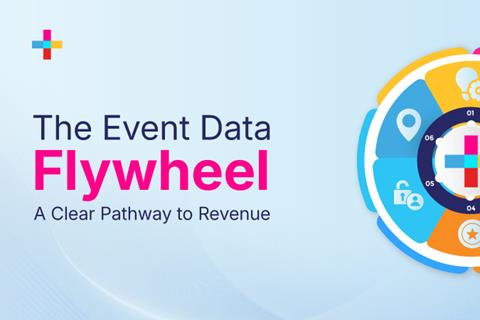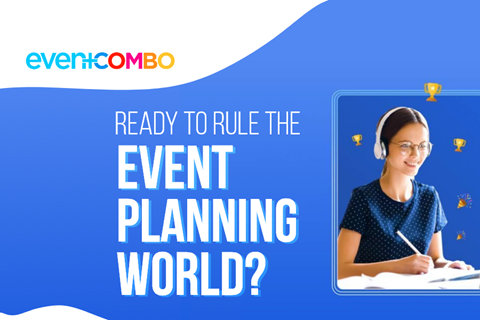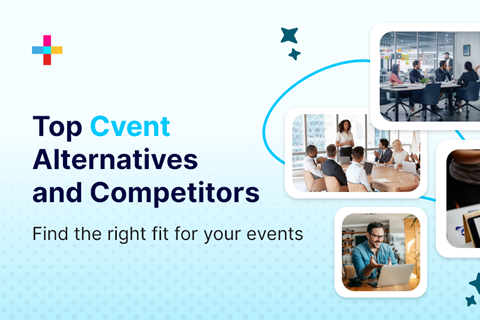

Managing a multi-generational audience can be challenging because each group has its unique preferences and goals. However, tailoring experiences to these diverse preferences allows you to easily boost your event’s appeal. This is exactly how event customization helps you.
It involves modifying the event to suit a broader audience, allowing for choices that cater to various tastes. Personalization is a big part of event customization, which focuses on individual attendee preferences, often driven by data insights that inform tailored content delivery and engagement opportunities.
In this post we’ll go over ways to customize events for different generations of attendees. You’ll find many ways to tailor the content, event tech, communication, event design, networking, and post-event follow-up for attendees of varied ages.
If you are catering to a diverse audience of attendees from different age groups, your event customization should be about planning activities that resonate with each age group.
According to Julius Solaris, the leading events consultant, Gen Z are replacing Gen X and Boomers as a major attendee group. However, most legacy events are not built to reflect the evolving needs of this group. If an event has a multigenerational audience, it is neccessary to plan it in alignment with the needs of varying age groups.
Finding differences for event customization begins with deep audience research. Broadly, it has been found that:
Gen Z or digital natives Gen Z has grown up with technology at their fingertips, making them highly comfortable with digital platforms and tools. They are adept at navigating social media, online communities, and various forms of digital communication.
They are drawn to new ideas, creativity, and technologies that enhance their experiences, often seeking out brands and events that reflect cutting-edge trends. Many Gen Zs prioritize social responsibility and environmental sustainability. They are more likely to support brands and events that align with their values, such as inclusivity and sustainability.
The best event customization strategies for Gen Z involve using technology, gamifying events, and diversifying content in different formats. You can have competitions to encourage networking, and real-time interaction through the event mobile app, and experiment with formats like workshops, panels, and hands-on activities. Allow them to customize their schedules or choose breakout sessions based on their interests. This personalization enhances the sense of ownership over the experience for Gen Z.
Millennials, raised in the digital age are team-oriented and crave personalized and meaningful connections. They are tech-savvy and are drawn to immersive environments that encourage social interaction and personal expression.
Event customization for millennials should reflect their personal interests and the ability to use tech easily. So, you should use mobile apps for registration, scheduling, and real-time updates during the event. Incorporate interactive displays that encourage social media sharing, allowing attendees to connect digitally.
Millennials can also be easily engaged by integrating gamification elements. Challenges like trivia, leaderboard, and quizzes enable them to bond effectively.
Born between 1965-1980, this generation is productive, self-reliant and embraces networking opportunities. They value a balance between work and personal life, often prioritizing flexibility in their professional environments. This generation seeks meaningful work that allows for personal fulfillment.
As the first generation to grow up with personal computers, Gen Xers are comfortable with technology but prefer straightforward applications over complex systems.
Event customization for this generation should involve keeping in mind their natural preferences. This means using hybrid event formats if in-person is not possible. Straightforward messaging and detailed agendas via email well in advance will help them plan accordingly.
Facilitate structured networking sessions where attendees can connect one-on-one or in small groups, catering to their preference for meaningful interactions over large crowds. There should be channels for real-time feedback during events, such as surveys or interactive Q&A sessions where thoughts can be expressed directly.
Boomers were born between 1946 to 1964. They are goal-focused and motivated individuals who love traditional in-person interactions.
These people have witnessed significant historical events, influencing their perspectives and values. They often appreciate nostalgia and connections to their past. They hold traditional values and emphasize stability, loyalty, and social order. They are also known for their brand loyalty and preference for established products and services.
Many Baby Boomers are moderate users of tech. They don't rely on it too much. They are more inclined toward social interaction and community involvement, whether through family gatherings or community events.
Event customization for Baby Boomers should align with their need for using less technology and more direct interactions. Give them clear agendas with structured sessions to aid in both learning and social interaction. Include breaks for networking to facilitate connections among attendees. Also, ensure to have on-site assistance for those who may need help navigating apps or digital tools.
Boomers would also love wellness-focused sessions, such as yoga or fitness breaks since they have a health-conscious mindset.
Now you know that every generation has unique characteristics that influence their interests, communication styles, and preferred learning methods. Event customization for content, such as speakers, topics, and session formats will make your experience relevant for all age groups. Check out this table to tailor the different aspects of planning content for attendees of varied ages.

Event technology empowers you to customize events and make them resonate well with every generation of attendees.
Event apps can personalize the experience for attendees of all generations. From tailored schedules to custom notifications and curated networking opportunities, follow-up to booking a meeting; it adapts to individual preferences.
Engagement tools like polls, live feedback, and gamification keep the younger generation engaged, allowing for real-time interaction and competitive spirit. These tools meet tech-savvy expectations while increasing participation.
Accessibility options in event platforms ensure that they are intuitive and easy to navigate for all ages. By offering features like real-time captioning, text scaling, and video transcription for hearing-impaired, it ensures an inclusive experience.
Personalizing communication before, during, and after the event helps you build a community of attendees. Targeted messaging builds a deeper bond with attendee groups and gives the impression that you care.
Use this table to tailor your communication for different generations of attendees:

Customized spaces encourage the kind of experience a specific group desires. When venues are selected and customized according to the specific attendee demographics, it makes them feel that they have received the most value from.
Customizing design elements, such as seating, quiet zones, lounges, and interactive areas to different generations provides the best experience. Here are some guidelines to follow.

Additionally, it’s crucial to get creative with the menu options. You should select food and beverage options that are preferred by specific demographics. This means having a variety of food options.
Keeping in mind the dietary restrictions of the older population is especially important. According to Jennafer Ross, the founder of JR Global Events, dietary restrictions from older people in the 50 to 60-year age group is especially more (as many as 22 dietary restrictions). Event planners cannot say no to the needs of different attendees as that influences their perception.
Everyone loves to network and make meaningful connections. In fact, it is one of the main reasons that compels people to register. Event customization for different generations of attendees should take into account the various preferences for networking.
A great way to customize networking is asking the preferences for it in the registration forms. You should also analyze past event data to determine which networking strategy appealed to a specific demographic. However, if you are catering to a demographic, you haven’t before, use these guidelines:
Gen Z and Millennials prefer rapid interactions wherein they get to know a lot of people. This group is also quite comfortable in using technology and social media.
So, some good networking opportunities for them include:
Older generations prefer structured networking sessions. You should leverage their inclination to build real relationships. For this, use topics that make them fully explore the thoughts of the other person. Here are some ways to customize event networking for older groups.
Post event follow-up is non-negotiable to create a well-engaged community for your brand. But it should correspond to the values and thinking patterns of your target demographic. To effectively tailor follow-up strategies in this way, use the feedback collected in the past from surveys.
Take advantage of your event management platform here. It has details on valuable metrics such as engagement rate, attendee satisfaction, Net Promotor Score (NPS), mobile app usage, and more. Using this data, personalize the follow-up communication for your target demographic(s).
Broadly, different generations of attendees prefer the following kinds of communication:
Understanding the needs of the target audience is the first step to successful event customization. This audience can be Gen Z, Millennials or a mix of different generations. The more you understand their preferences and what binds them together the better will be your effort. This will also enable you to personalize communication and engagement strategies before, during, and after the event.
Now that you know the significance of event customization you can assess whether your upcoming event is designed exclusively for your target attendees. If not, you know what to do. Let event technology complement your event customization efforts and you’re set for success. Eventcombo’s range of event tech will help you in this process. Check them out here.

The metrics look strong. Registrations are up. Attendance holds. Satisfaction scores clear the benchmark. Then comes the CFO question that freezes the room. Which registrations turned into customers? Sales checks the...

Professional certifications for event planners do more than provide a solid foundation in the field; they offer valuable exposure to the dynamic world of event planning and insights from prominent industry experts.

Choosing the right event management platform is vital for event professionals navigating the growing demand for in person , virtual, and hybrid events. Modern planners need solutions that offer robust features,...